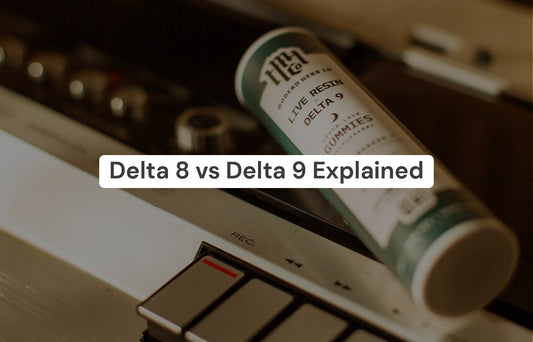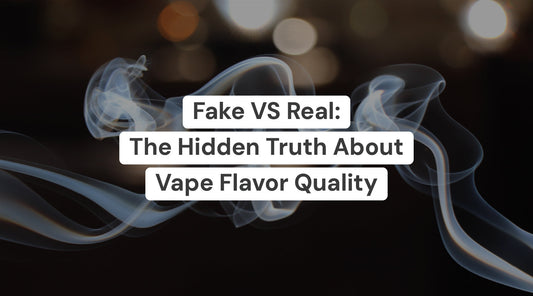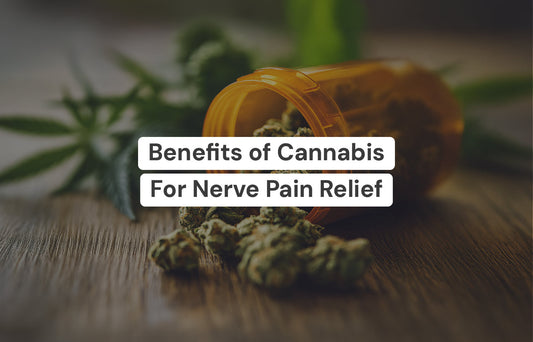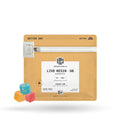What is CBD Distillate?
CBD Distillate is an Important Extract
Distillate is a concentrated CBD extract found in a majority of the products on the market today. Its popularity in product formulations is attributed to it's lack of taste making it more palatable for consumers and ideal for products like vape pens, tinctures and edibles. It also contains a range of important plant compounds including terpenes making it a more effective and desired by consumers who want closer to a whole plant extract then Isolate offers. CBD distillate is most commonly extracted from hemp plant material although it can also be extracted from cannabis plants containing CBD. Common methods of extraction include solventless and solvent based options like CO2, Ethanol and BHO.
Table of content
Through the refinement process, impurities are removed from the CBD distillate, leaving a relatively tasteless, odorless, honey colored concentrate with a viscosity relative to honey
CBD distillate can contain a varying concentration of CBD but typically is found with between 80-90% pure CBD in addition to other cannabinoids and terpenes. CBD Distillate can be further refined to remove the THC, taking it from being full-spectrum to being broad-spectrum. at this point the distillate is THC free which is known as THC Free Distillate or in short, "T-Free Distillate". The refined distillate has a viscosity and color similar to honey and imparts minimal taste.
THE DIFFERENT DISTILLATES EXPLAINED
FULL SPECTRUM CBD DISTILLATE
One of the most popular forms of CBD is “full spectrum”. Full-spectrum distillate isn't as refined as Isolate or THC Free. In full-spectrum distillate, CBD is typically the most concentrated compound.
Full-spectrum CBD distillate contains a wide range of plant constituents including other cannabinoids and terpenes but most importantly it contains THC.
Full-spectrum is usually desired for product formulation of CBD products because of Dr. Ethan Russo's much discussed findings known as the “entourage effect.” This term refers to the potentiating interaction of various cannabinoids and terpenes. Although more research is needed to reduce variables in exactly how these interactions work, it is accepted that cannabinoids and terpenes have a stronger effect when ingested together so they can work synergistically within our endocannabinoid system. One con with full-spectrum distillate is that it does impart a taste which could be described as herbaceous. This can easily be worked with by using natural flavor additives and terpenes. Need a supplier for terpenes or natural flavors? Contact us for a list of companies with high-quality forms, free of additives and harmful residues; an important consideration when sourcing.
BROAD SPECTRUM / THC-FREE CBD DISTILLATE
Broad-spectrum CBD is a more refined version of full-spectrum CBD where the THC is refined out. Having the THC removed is a desirable alternative for consumers with jobs that do not allow for consumption of THC and for those who have a personal preferences to not consume THC.
It's also preferred by businesses wanting to export to countries where THC is not allowed and who want to mitigate risk of seizure during transport or rejection of licensing contracts. Many facilities will not accept manufacturing contracts if THC is present in any amount.
But a downside and major consideration of going with THC free distillate is that studies have clearly shown THC's presence, even in trace amounts, helps the body's endocannabinoid system engage with the CBD, known as the entourage effect, which we mentioned earlier. So for long term product value having a full-spectrum product is recommended.
RECONSTITUTED DISTILLATE
Another method being used more commonly is the re-constitution of beneficial cannabinoids and terpenes with CBD Isolate to make a version of broad-spectrum that is more controlled and consistent for product formulating. This ensures that every batch has the same concentrations of major and minor compounds for both taste and effect.
A downside to this method is that there are many plant parts that have yet to be discovered so in fractioning and reconstituting the distillate there are compounds that may be missing which play important roles that impact the potency and side effects of the distillate.
Additionally there is not enough research surrounding what plant constituents are relevant and therapeutic so we are advocates of staying as close as possible to the plants original composition when possible in your business model.
REFINEMENT OF THE DISTILLATE
WINTERIZATION
A major benefit of the distillation process is that it’s able to filter out all of these impurities. After extracting CBD using one of the methods listed above, workers put their product into a container with ethanol and leave it in a cold environment for about two days. This “winterization” process causes undesired impurities to solidify and fall to the bottom of the container. Once winterization is completed, workers filter out all of the ethanol and coagulated impurities before further refining their CBD using heat. As the liquid CBD turns into vapor, it’s fed through a cooling tube that drips out the pure distillate. Processors could repeat this process as many times as necessary to get the exact percentage of CBD desired.
DECARBOLXYLATION
Decarboxylation is the next major step in hemp distillate production. Hemp cannabinoids exist within the extract in their acid form and are not active. This can only be done with the use of heat. That’s why hemp and cannabis are smoked or vaped: to release the active compounds within the plant and make it able to interact with the endocannabinoid receptors. There are no standardized temperatures when it comes to decarboxylation. We know, however, that CBD is activated at a higher temperature than THC. Sadly, this process removes most of the heat-sensitive terpenes of the hemp plant, leading to a more neutral-tasting product.
Distillation
After passing through the processes of extraction, winterization, and decarboxylation, the mixture is finally ready for the distillation process and removal of excess compounds. Two methods are prevalent in the hemp industry: steam distillation or fractional distillation. These techniques can be reproduced to create an even more refined product that can reach 99% in purity.
CBD EXTRACTION METHODS EXPLAINED
SOLVENT BASED AND SOLVENTLESS
The two major extraction methods are solvent based and solventless. Solvent based extraction uses some version of a liquid solvent like alcohol, to extract the desired compounds from the plant material. Solventless extraction methods, rely on either pressure or rinsing techniques for isolation of the compounds from the material.
CO2 VERSUS ETHANOL
The two solvents most commonly used in extraction are carbon dioxide, also known as CO2, and ethanol. Manufacturers like using these methods because of their ability to easily extract cannabinoids and terpenes without attaching to the finished product. With CO2 extraction, the CO2 has to be transformed from a gas state into a liquid by placing it in a deeply cooled environment. Once the CO2 is fluid, the liquid is put under pressure and heat to push it into a supercritical state.
The supercritical CO2 exhibits properties of both a liquid and gas, making it ideal for extracting the range of cannabinoids found in the hemp plant material
In contrast, ethanol is an excellent solvent because of its high degree of polarity. Since ethanol is only toxic in high concentrations, it is commonly used safely in the food, cosmetics, and medical industries. Ethanol can be used in chambers similar to CO2, to extract the desired compounds from the plant material.
PROS AND CONS
CO2’s safety and targeted extraction capability, are major considerations for its use but loss of important plant compounds including terpenes and secondary cannabinoids during the purification process are a considerable downside. It is also much more expensive with lower returns compared to its counterpart, ethanol. Ethanol extraction is also safe and can extract the widest range of plant compounds making a strong case for its use. The compound’s high polarity allows it to dissolve both water and oil based molecules. The downside is this means it also extracts unwanted compounds like chlorophyll, which contributes a herbaceous taste and green colors to final products.
Ready to buy wholesale bulk CBD extracts for your product? View the wholesale hemp products section of this site to see product availability and pricing.
The Hemp Collective has strategic partnerships with processors and critical support services in the hemp industry. We curate those relationships based on assurance of,
- The highest quality CBD extracts available
- High-volume availability
- Competitive pricing and terms
- Low minimums for starting companies
- Consistency of product between orders
- A commitment to serving the industry
Here is our most popular CBD Distillate item we offer. This is a fully THC-Free CBD version.
Related Post

About Ashley Dellinger
Ashley Dellinger is a trailblazer in the cannabis and hemp sectors, serving as the Director of Innovation at The Hemp Collect. With a keen visionary mindset, she not only propels advancements in these industries but also showcases her versatility as a seasoned professional writer based in Oregon. As a collaborative force, Ashley works alongside leading brands, processors, and retailers to elevate industry standards. Ashley Dellinger's work not only sets new benchmarks but also inspires others to pursue excellence. For a closer look into her insights and experiences, connect with Ashley on LinkedIn, Instagram, and Facebook.

















